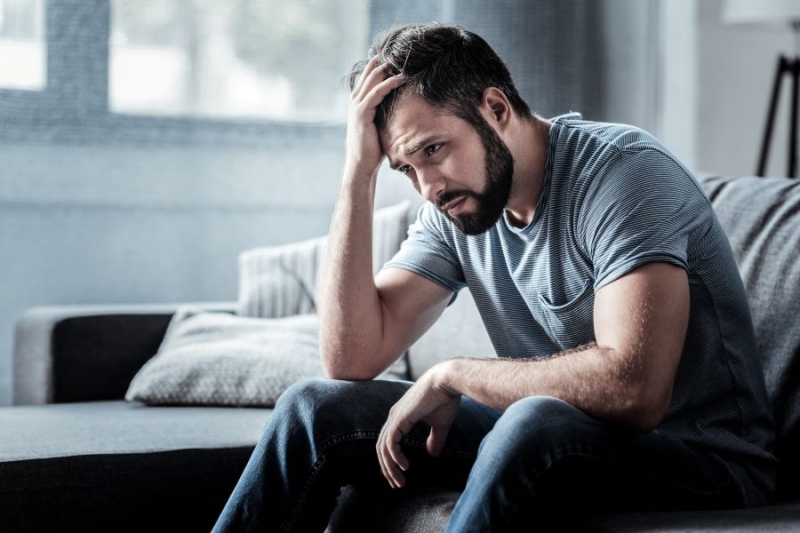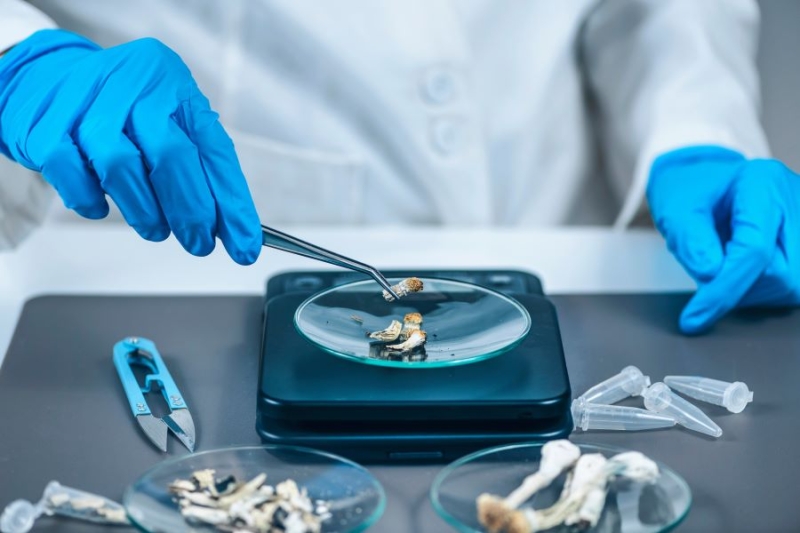Contents
24 Sep 2024 — Both psilocybin — the active ingredient in “magic mushrooms” — and standard antidepressants show similar longer-term improvements in depressive symptoms, according to a new clinical trial. However, the researchers reveal that people taking psilocybin instead of standard treatment reported better psychosocial functioning, including a greater sense of meaning in life and psychological connectedness.
In the double-blind, randomized controlled trial, the researchers divided 59 patients with moderate to severe depression into two groups. One was treated with a single dose of psilocybin, and the other group received a six-week course of escitalopram, a selective serotonin reuptake inhibitor (SSRI).
SSRI drugs, such as Prozac, Paxil and Zoloft, are some of the main types of drugs to treat depression, but a third of patients don’t respond to such treatment.
“This is the first work to compare the long-term effects of these two drugs in the context of overall well-being, not just freedom from depression,” details lead researcher Tommaso Barba, Ph.D. candidate from Imperial College London, UK.
“In previous work, we had found that both treatments led to comparable improvements in alleviating symptoms of depression at the six-week mark, such as sadness and negative emotions. However, this work shows that psilocybin outperformed escitalopram in several measures of well-being, meaning in life, work and social functioning. These results appeared to be maintained over a six-month follow-up period.”
“In addition, in previous work, we had found that psilocybin also improves sexual drive, in contrast to SSRIs, which tend to lower libido in many patients. So overall, it seems psilocybin might provide additional positive mental health benefits.”
The researchers presented their work at this week’s European College of Neuropsychopharmacology Congress in Milan, Italy — an annual scientific meeting for disease-oriented brain research.
Holistic treatment option
The study, published in Lancet eClinicalMedicine, covers a six-month follow-up period of patients with major depressive disorder or moderate to severe depression after receiving either two 25 mg doses of psilocybin or a six-week course of escitalopram — 10 mg daily for three weeks, followed by 20 mg daily for three weeks. In addition, the participants in both groups received psychological support.

Improving connectedness and meaning in life can significantly enhance a person’s quality of life and long-term mental health.The researchers measured changes in depression symptoms through a self-reported survey, which was previously reported. The team measured social functioning, connectedness and meaning in life during the six-month follow-up period using different scales and questionnaires.
They conclude that psilocybin therapy may be associated with more significant improvements in overall mental health. “These results could inform clinical guidelines to consider the broader aspects of mental health recovery, rather than focusing solely on symptom remission,” highlights the report.
“This is important because improving connectedness and having greater meaning in life can significantly enhance a person’s quality of life and long-term mental health,” comments co-first author Dr. David Erritzoe, clinical director and deputy head of the Centre for Psychedelic Research at Imperial College, London.
“The study suggests that psilocybin therapy might be a more holistic treatment option for depression, addressing both the symptoms of depression and overall well-being. This could make a substantial difference in the overall happiness and daily activities of those suffering from depression, providing a more joined-up approach to mental health treatment.”
Experimental use
Barba notes that SSRIs work well but not for everyone. Moreover, they are associated with side effects.
“However, this work implies that psilocybin generally seems to offer a real alternative, and perhaps additional benefits, to people who are worried about taking conventional antidepressants.”

As an experimental drug, psilocybin is administered in controlled and protected environments, which is not the case in recreational use.Meanwhile, Erritzoe cautions that psilocybin is an experimental drug that is not yet approved for general use. “It is administered in highly controlled and protected environments: these precautions are not found in recreational psychedelic use, which is known for having unpredictable and potentially harmful effects, especially for vulnerable people struggling with mental health issues.”
Many studies on psilocybin include psychedelic or psychological support during and after treatment. The US FDA has also issued guidance to sponsor the development of psychedelic-based treatments, such as psilocybin. This helps to design clinical studies to evaluate the safety and effectiveness of psychedelic compounds.
Most people using psychedelics do so outside of such controlled settings. At the same time, their use has also been associated with adverse effects, such as distorted thinking, perceptual changes and intense feelings of fear, anxiety and confusion. Earlier this year, researchers reported that access to psychedelics is growing, as US law enforcement seizure of magic mushrooms grew 369% in five years.
Overcoming limitations
Despite the study’s promising results, the researchers point to several limitations, warning that the results should be interpreted cautiously and that future research is critical to addressing these.
They say the study was “not optimally powered” to detect slight differences between treatments, there was missing data, self-reported treatment assessments introduced subjectivity and patients used additional interventions.
For example, while the researchers did not observe any disparity in treatment uptake, 63% of patients in the psilocybin group reported “some form of additional treatment during the six months of follow-up.” Therefore, the team cautions that it cannot rule out the involvement of these treatments in influencing the results.

Future research is key to investigate the duration of psilocybin benefits and overcome the study’s limitations.Moreover, they note that the psychological support, standard in psilocybin therapy, is not always included in standard medication treatments. They suggest that this addition in the group taking escitalopram may have affected the observed benefits in this group.
“The authors have tended to attribute differences observed in this study to comparative differences between the drugs themselves,” comments Dr. James Rucker, consultant psychiatrist and senior clinical lecturer in psychopharmacology at King’s College London, UK. Rucker was not involved in the study.
“However, it is also possible that the results reflect biased reporting between groups. This is more likely here because studies involving psilocybin tend to attract those with positive preconceptions about psilocybin and negative preconceptions about conventional antidepressants and study participants were unblinded during the long-term follow-up phase that is reported in the paper, so they knew which condition they were allocated to.”
Additional treatment option
However, Rucker adds that the nature of depression “varies hugely” between individuals, which calls for a similarly varied range of treatment options.
“Psilocybin therapy is certainly a different paradigm of treatment to escitalopram. The observation of similar levels of effectiveness to antidepressants here is encouraging to see alongside the much larger trials of psilocybin currently underway here in the UK, Europe and the US.”
The authors conclude that future research is vital to investigate the duration and factors affecting the longevity of psilocybin benefits and the neuroplastic and learning mechanisms that may contribute to the sustained effects of both treatments.
“The study hopes to inspire a nuanced understanding of therapeutic efficacy by emphasizing the importance of functional recovery and quality of life improvements.”
By Jolanda van Hal

